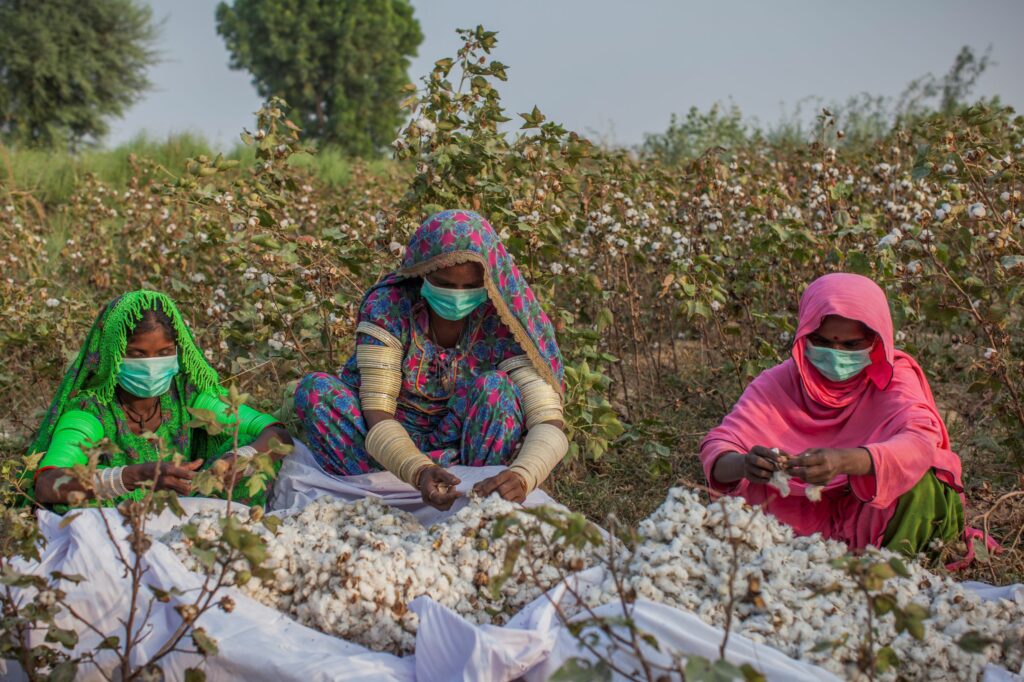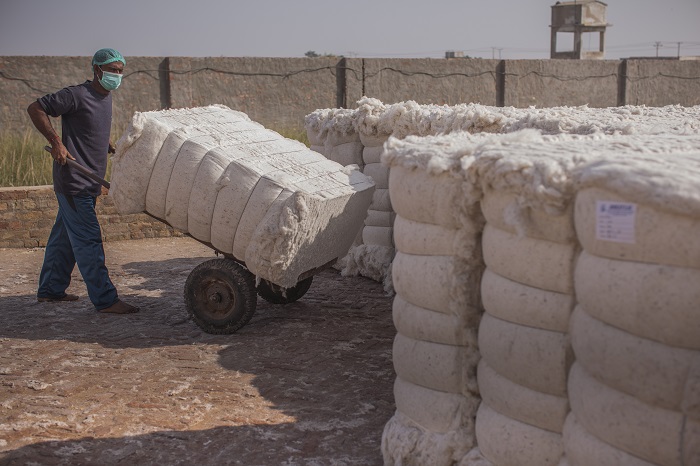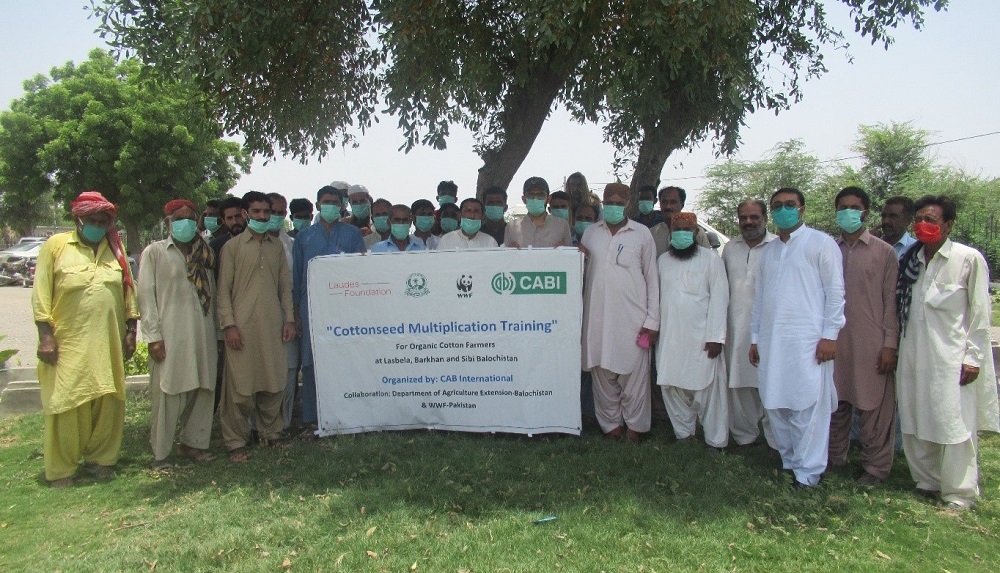CABI Blog
Tag: Organic cotton
You are here: CABI Blog
Organic cotton in Pakistan: policy analysis and recommendations
July 6, 2021
Babar Latif Baloch, Toby Penrhys-Evans, Umair Safdar
1 comment
As the fourth largest cotton producer worldwide, cotton is an integral part of Pakistan’s economy contributing 9.5% of its gross domestic and serving as a core livelihood for 15 million cotton workers. In addition to bringing US$3.5 billion as foreign currency each year to the country, it provides crucial income to cotton-producing households, accounting for…
Shared expertise helps plans for Pakistan to produce over 5,000 tons of organic cotton by end of year
January 25, 2021
Babar Latif Baloch, Mohsin Abbasi
2 comments
CABI Central and West Asia brought together 30 farmers from the Barkhan and Lasbella districts of Balochistan to share expertise which will help plans for Pakistan to produce more than 5,000 tons of organic cotton by the end of the year.
Conservation of beneficial insects through NEFR installation in cotton crop
July 29, 2020
Ashfaque Ahmed Nahiyoon, Babar Latif Baloch
2 comments
Cotton crop is the main source to produce the fiber, cotton seed cake, and for animal feed to support an increase in milk production and oil in good quantities. The sticks of cotton crop also support in burning fires for cooking purpose in the rural areas of Pakistan in places where other resources are not…
Training of organic cotton farmers for seed multiplication
July 28, 2020
Ashfaque Ahmed Nahiyoon, Babar Latif Baloch
No Comments
Organic cotton refers to naturally cultivated cotton without the use of any synthetic agricultural chemicals, such as fertilizer or pesticides or transgenic technology, to secure sustainable, ecological and biodynamic agriculture. Organic cotton also promotes and enhances biodiversity and biological cycles and is beneficial to human health and the environment.
Subscribe to blog
DISCLAIMER
Views expressed in contributions do not necessarily reflect official CABI positions.
Archives
Categories
- Agriculture and International Development
- Veterinary and Animal Sciences
- Climate change and biodiversity
- Publishing
- Value chains and trade
- Crop health
- Environmental Sciences
- Human Sciences
- Tourism, Hospitality and Leisure
- Food and nutrition security
- Plant Sciences
- Gender and youth
- Digital development
- Development communication and extension
- Economic development
- Invasive species
- CABI Bioservices
- One Health




